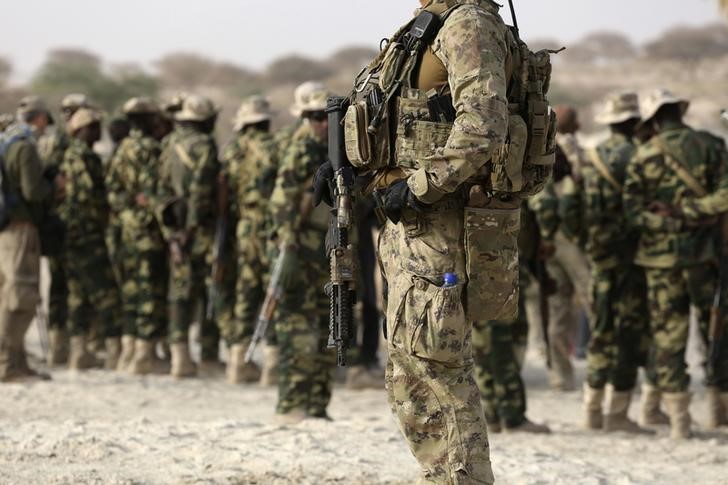By Tom Westbrook
SYDNEY, Oct 6 (Reuters) - Australia and the United States have agreed to share the cost of the U.S. military's presence in Australia's tropical north, a critical part of President Barack Obama's "pivot" to Asia, Australian Defence Minister Marise Payne said on Thursday.
Payne met U.S. Defense Secretary Ash Carter in Washington this week to discuss plans to double the number of U.S. Marines in the northern city of Darwin from the current 1,250 by 2020, a goal that was delayed earlier this year from 2017 as originally planned.
Australia and the United States signed a "force posture agreement" in 2014 to provide for joint exercises and for U.S. naval and air force deployments. Operational costs until now had been split on an ad-hoc basis, with infrastructure spending withheld.
In March, they discussed basing U.S. long-range B-1 bombers in Darwin, bolstering U.S. military presence close to the disputed South China Sea. Darwin is closer to Indonesia than it is to the Australian capital, Canberra. in charting a course between its most important ally the United States and its biggest trading partner China in the contested region, Australia has drawn rebukes from both superpowers. China has criticised Australian freedom-of-navigation flights in the area and a senior U.S. soldier has called on Australia to do more there. said in a statement on Thursday that supporting the Marines in Darwin was "consistent with Australia's long-standing strategic interests in supporting U.S. engagement in our region in a manner that promotes regional security and stability".
The two countries will share more than A$2 billion ($1.52 billion) in infrastructure investment in northern Australia and other costs linked to the 25-year deployment.
There are plans for combined training and exercises, potentially including other partners in the Asia-Pacific region.
Payne's office declined to provide a breakdown of the cost-sharing deal or give further detail on how and when the troop numbers would be increased.
There was no immediate comment from U.S. officials on the agreement to share costs.
However, Republican presidential candidate Donald Trump has flagged changes to cost-sharing arrangements with other U.S. allies in the region, saying countries such as Japan and South Korea should pay more towards their defence. = 1.3139 Australian dollars) (Editing by Jane Wardell and Paul Tait)
